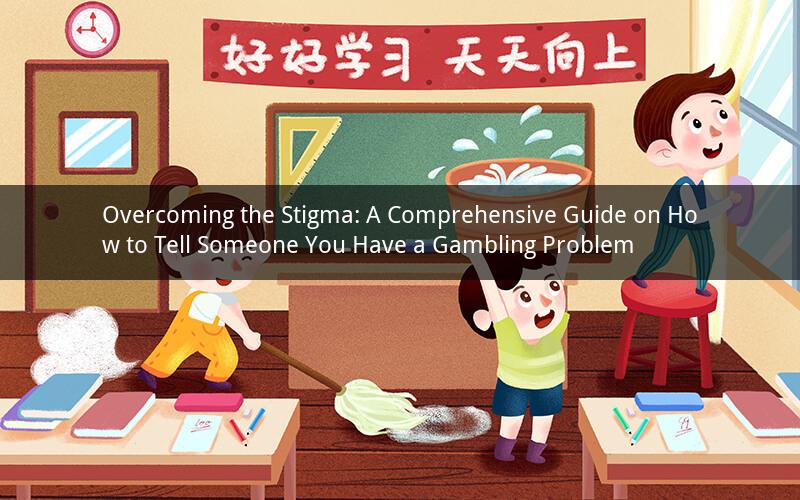
Introduction:
Gambling addiction is a prevalent issue affecting millions of individuals worldwide. However, the fear of judgment and stigma often prevents individuals from seeking help. This article aims to provide a comprehensive guide on how to tell someone you have a gambling problem, emphasizing empathy, understanding, and support.
1. Understanding the Importance of Sharing Your Problem
Sharing your gambling problem is a crucial step towards recovery. It allows you to seek support from loved ones, friends, or professionals who can provide the necessary guidance and resources. Here are a few reasons why sharing your problem is essential:
a. Emotional Support: Sharing your struggles can provide you with a sense of relief and reduce feelings of isolation.
b. Encouragement: Loved ones can offer words of encouragement, reminding you that you are not alone in this journey.
c. Accountability: Having someone to hold you accountable can significantly enhance your chances of overcoming your gambling addiction.
2. Choosing the Right Time and Place
Selecting the appropriate time and place to discuss your gambling problem is crucial. Here are some tips to consider:
a. Privacy: Choose a private and comfortable setting where you won't be interrupted or overheard.
b. Calmness: Wait for a moment when everyone is calm and not under stress.
c. Supportive Environment: Ensure that the person you are sharing with is someone you trust and who is likely to offer support.
3. Preparing What to Say
Before initiating the conversation, it's essential to prepare what you want to say. Here are some guidelines:
a. Be Honest: Admitting that you have a gambling problem is the first step. Be honest about your struggles and the impact it has had on your life.
b. Express Regret: Acknowledge the harm caused to yourself, your loved ones, and anyone else affected by your gambling behavior.
c. Emphasize Your Commitment to Change: Show that you are serious about seeking help and making positive changes in your life.
4. The Conversation
Here are some tips to make the conversation more effective:
a. Use "I" Statements: Instead of blaming others, focus on how your gambling addiction has affected you and your loved ones.
b. Be Clear and Concise: Avoid rambling or getting sidetracked. Stick to the main points.
c. Listen to Their Reactions: Be prepared for various reactions, including surprise, anger, or disappointment. Show empathy and understanding towards their feelings.
5. Seeking Professional Help
After sharing your gambling problem, it's crucial to seek professional help. Here are some options:
a. Therapy: Consider seeking therapy from a mental health professional specializing in gambling addiction.
b. Support Groups: Joining a support group, such as Gamblers Anonymous, can provide a sense of community and shared experiences.
c. Treatment Programs: Look for inpatient or outpatient treatment programs tailored to address gambling addiction.
Frequently Asked Questions:
Q1: What if the person I tell doesn't understand or react negatively?
A1: It's essential to remain calm and patient. Explain that you are sharing your problem out of a desire for support and understanding. Offer resources or information to help them better understand the issue.
Q2: How can I ensure my loved ones won't judge me?
A2: Choose someone you trust and who has shown empathy in the past. Explain that you are seeking help and support, not judgment. Be prepared to answer any questions they may have.
Q3: Should I tell everyone about my gambling problem?
A3: It's important to prioritize those who can offer genuine support and understanding. Share your problem with trusted friends, family members, or professionals who can provide the necessary guidance.
Q4: How long should I wait before sharing my problem with someone?
A4: There is no specific timeline for sharing your problem. Wait until you feel ready and comfortable opening up. It's crucial to choose a moment when you are mentally and emotionally prepared.
Q5: What if I'm scared of the consequences of sharing my problem?
A5: It's natural to feel anxious about the potential consequences. However, remember that seeking help is a sign of strength. Focus on the positive outcomes of sharing your problem, such as finding support and taking steps towards recovery.